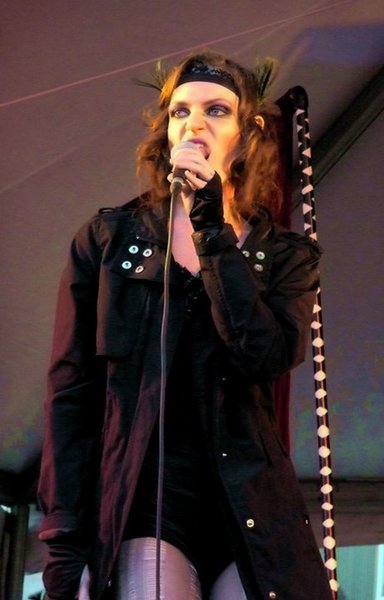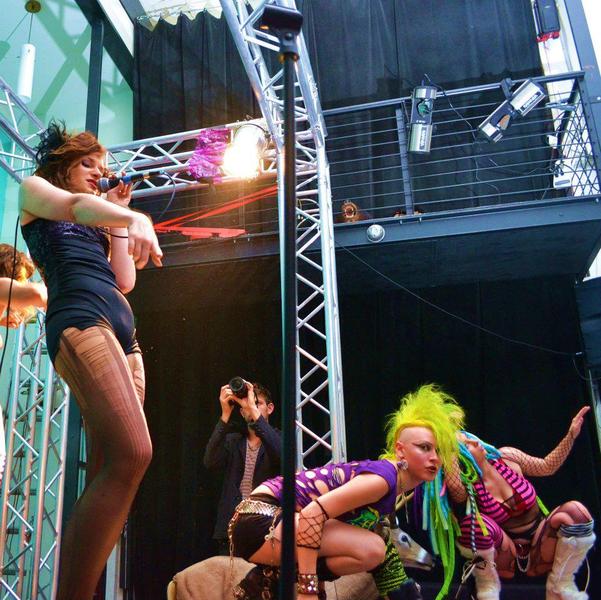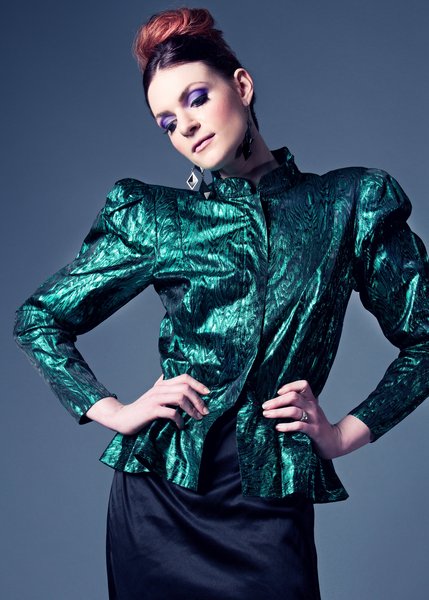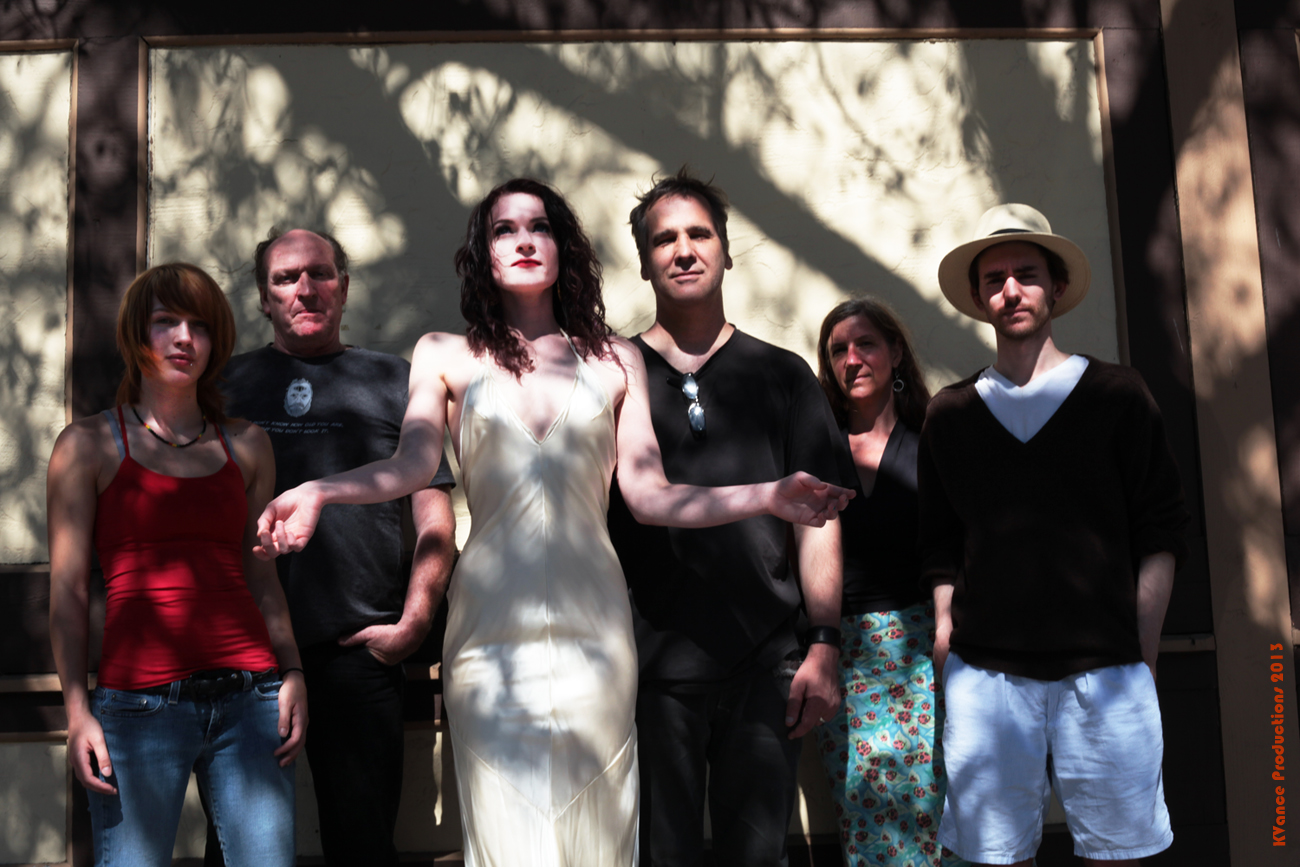Dionvox – The MusicTech Q&A
Welcome back to our artist Q&A here at MusicTech.net, this week we’re chatting with the highly acclaimed Dionvox. The band are fronted by a versatile and sassy eponymous female vocalist and describe their sound as ‘hip hop and dance beats mixed with real instruments’ or in the words of the Seattle Music Revival: ‘Imagine if […]

Welcome back to our artist Q&A here at MusicTech.net, this week we’re chatting with the highly acclaimed Dionvox.
The band are fronted by a versatile and sassy eponymous female vocalist and describe their sound as ‘hip hop and dance beats mixed with real instruments’ or in the words of the Seattle Music Revival: ‘Imagine if Amy Winehouse got locked in a studio with Aphex Twin’. The band formed originally during a Wu Tang Killer Beez recording session and have subsequently won 4 national music competitions in America. They are focused on pushing the envelope with their new material and live performing. We talked at length about their music-making process and career ambitions..

How did DIONVOX first form?
Scobra: I was living down in Los Angeles producing records and I met Dionvox at the local coffee shop. As a lark I asked her to write a song for Leila Steinberg’s Microphone sessions. I soon realized she was living in a pretty rough part of Los Angeles and offered her a spare room at the studio. One day I was running a rather rough and tumble Wu Tang Killa Beez session with Q tip rapping the hook. We needed a little pre-chorus filled in and the person they brought in to do this passed out on the floor so they asked Dionvox to sing the part. Everyone was so floored by her words and delivery; I mean word got around like wildfire. Soon we were showcasing our little act weekly in and around LA. Since we were working with Leila Steinberg, we were soon collaborating with artists of all stripes pretty much all the time. The records are still coming out to this day.
Dionvox: I never wanted a band. Never had one. It was an accident made good. Once I started though, I realized that I had spent my entire life studying and working hard on these five individual fingers. Through this band, I was suddenly able to use them together as a hand.
I guess the real ‘moment’ of it was after I had recorded a few songs with the Wu Tang Killa Beez. Scobra asked if I wanted to try doing a song of my own, for fun. It turned out to be a really good song. It scared us both to come out of the gates like that. So we shrugged and thought it was a fluke, but we would try a few more and see what happened. They were pretty good too. So we began writing and recording like mad. We recorded 3-5 songs a day for months on end. We never looked back.
How do you normally approach new material, do you write together or individually?
Scobra: Dion will often have a melody or I will have a simple beat for starters. We try to record the main vocal elements to a very sparse beat, preferring to orchestrate the music around the vocals than vice versa. We will write the melody out on piano and eventually play the whole piece on a grand piano to make sure the elements are musical and to ensure we have a proper “song”. We make midi files of the melody and the instrumental hooks for later use in soft synths etc. We’re getting pretty crafty using Celemony Melodyne for .wav to midi conversion. We would really love to meet Peter Neubacker one day and thank him for opening up so many awesome musical opportunities for us. Most people use Melodyne for pitching vocals but we are really starting to learn some truly powerful techniques in Melodyne.
Sometimes Dion will perform a stream of consciousness vocal recording and I will find a few phrases and make a few hooks to use as building blocks. The band will then take that hook and write a whole new track based on this hook. We also like to experiment putting every section over every other section just to see what happens. It’s awesome when a track takes on new dimensions using this technique.
One thing we do that is perhaps a little different is we commit to an arrangement very early in the writing process. I find that if you have a scratch arrangement very early on, it is often easier to get an eagle-eyed view of the track. It’s kind of a buffer against the tendency to focus on some small element and lose the over-all vision.
We’ve developed a healthy collection of arrangement .wav files that can be tempo/synced with a robot voice saying “Intro””Verse””Chorus” – etc. We bring our collection of arrangements in text files as well, just in case we are in a foreign studio. All of this is of particular help if one is using metric modulations or other forms of asymmetry in their arrangements, as we tend to do.
Eventually everything ends up in our Pro Tools 9 rig and I will do a rough “vibey” mix, then it’s off to our mix guru Gary Mula @ “The Bani-Love Studio” in Columbia City who performs the final mix on his Quad 8 Pacifica mixing console in a proper room with tons of outboard just in case it’s needed. From there we send it off to Steve Turnidge at Ultraviolet Mastering/Seattle for eternal goodness. One distinctive thing about our band is that no one really gives anyone any directions of any kind from the beginning right up to the mastering stage. It’s a free for all in a sense and we like it that way. We seem to find the most amazing folks to work with, so that helps. We just let the melody and lyrics guide us from concept to completion and let the creatives involved do what they do best.
Dionvox: We write individually, but are constantly bouncing things back and forth. So it’s very much in unison. It starts with a beat that one of us has started, then I will write words and the melody at the same time. They tend to inspire each other simultaneously to the beat. I’ll record an idea, and then Scobra will flesh out the beat, and I’ll work on the melody and cadence of the words on a piano. We’ll go back and record clean vocals, and play with some synths and guitars to make complimentary sounds. We really love to add atmospheres and textures. Then Scobra will clean it up with a pre-mix and send it off.

How would you describe the sound of DIONVOX?
Dionvox: I’m not much of a music buff, so I have a hard time describing it in terms of reference or comparison. We have a feisty and aggressive side that is refreshing from a female fronted band. But I also think we offer vulnerability, and sweetness which is something every human can connect with.
Scobra: I describe the Dionvox sound as hip hop and dance beats mixed with real instruments featuring a sassy baritone female singer singing intelligent lyrics.
Which of your releases are you most satisfied with creatively?
Dionvox: I’m going to have to answer this one purely based on results. Otherwise, it would be like trying to pick my favorite piece of color in a kaleidoscope. Caught Up was originally written for Tupac on his birthday. This party was our first performance for Leila Steinberg, and it made a lasting impression – with a film crew present. We then used it as our Spin Magazine/ Popchips single, and ended up winning the entire competition. So that song has been mighty kind to our cause.
Scobra: I like our album “Alien Music For Humans” the most. AMFH sounds like a mixture of LA South Central Ghetto-tech mixed up with minimalist European electronica using contemporary pop arrangements. I like the fact that every song on that album is a true live vocal performance. That’s pretty rare these days. What we might have missed in accuracy, we pick up in feeling and vibe.

What software/hardware do you use in studio?
Scobra: We have a dedicated PC running Acid Pro 7 and an IMAC station running Logic and Pro Tools 9. We find there is nothing faster than Acid Pro for generating the initial sketch.
We’re big fans of both Alchemy and Sylenth. It’s a never-ending universe when you program your own sounds with those synths. We love all of Rob Papen’s synths. We have an Akai MPK49 controller that works well. For outboard gear, we have a dbx 160x compressor, a 1964 Ampex tube pre (with XLR I/O), and a TC electronic M300 Processor.
For vocals, we use a standard Shure SM58 mic through a Universal Audio-610 tube pre-amp, then straight into a Focusrite Scarlet Soundcard. Every song is performed from beginning to end with no headphones. With 24-bit technology, we find there is so much dynamic range to work with these days, we can take some liberties when it comes to signal/noise ratio. We don’t worry about bleed too much. If bleed becomes a problem, Dionvox is ace at using Waves X-noise. Dionvox simply sings in the studio just like she sings live.
What gear and instruments do you use for live performance?
Dionvox: We run our DJ tracks on a Macbook using Ableton Live. I have an NI Maschine for live percussion work and the odd beat.
I use a splitter on my vocal mic where I send a dry vocal out to the house and then I send another dry vocal over to Scobra, where he uses a system of 3 SSL G series compressors along with various analog delays. Then we send that out to the house as well. Each song loads up a combination of this basic configuration. The compressors are barely compressing (1.2 ratio) and the delays are tempo synced 90% of the time. Scobra controls all of this on his laptop in Ableton live, making slight adjustments as the show progresses. I use a Novation Nocturn controller to control an obscure filter plug-in that some amazing kid in Auckland designed for filter sweeps and tonal shaping. Finally I always have a copy of Izotope Vinyl ready for the vocal stream. Vinyl is amazing for getting some serious midrange bite in your live vocal sound. I always choose the “1920’s setting” which is narrow and really aggressive. I play my Danelectro bass straight into the house system. I go for a “tubby sub bass feel” which works great for the dance floor.
Scobra: I use an Epiphone Les Paul Standard through a Crate DX 112 guitar amp and no effects. For large venues I will rent a Marshall 50-watt 4×12 half stack. I play a Fender Precision bass straight into the house system. Dionvox got me playing bass through the house system only and though it betrays a certain logic, it has some amazing advantages. Somehow we feel we can sculpt our low end to the venue a little better and avoid the dreaded “you are too loud”. It is such a cool feeling pulsing a large venue with your bass through the house subs. For electronics, I have an inexpensive MK-4902 controller controlling a Alesis S4 and a Roland Sh-32 synth. I have a MacBook running Ableton Live onstage that controls all of the vocal plug-ins etc.
How did it feel to win 4 national music competitions?
Scobra: I love competition but music competitions always seem to have some annoying aspects to them. No one wants to “beat” another band. In principle this is a ridiculous concept. The good side is that your music does get out to a wider audience. We went from a few hundred downloads here and there to literally thousands going out to every part of the world. In the end this is good for a band like Dionvox because our sound is not an overt attempt at pandering to an audience. It’s a pretty individual sound that defies real classification, so competitions can give unorthodox bands a needed lift. We ARE a Seattle band, so Dionvox comes from a musical tradition that frowns on grandstanding and instead focuses on craft.
It’s great to be recognized for multiple national wins, but it’s also good not to get wrapped up in all of that stuff. It really is all about the music and not much else. To me, if you are writing and performing, you ARE successful. The struggle never ends.
Dionvox: It felt hard and draining, and ultimately rewarding, – the main reward was that it was OVER. I second Scobra in the sense that it always felt like we were going to war with and
against other artists. Seemed like an idiotic notion in the big picture. But the flipside is that it taught me how incredibly effective it is to put yourself out there and grind ahead as fast and hard as you possibly can. It works.

What was it like working with legendary music manager Leila Steinberg? (once manager of 2pac)
Dionvox: Inspirational, good for the soul, illusion dissolving, and grimy as all get out.
Scobra:. Leila is a real butt kicker. Leila expects you to be a real artist and do the real work in real time concurrent with whatever else is going on in your life. For a band to be in the shadow of Tupac Shakur is serious business over here on the west coast. Leila taught us to look beyond ourselves and ask what we are doing for our community and for the world at large and how our musical endeavors figure into all of this? It’s a pretty tough culture but I’m super glad I could put in as many years as I did and survive to tell about it. Ultimately, Leila taught us to honor our family and community. Dion’s dad Steve runs our live sound and her mom Tia is always around showing support. To us our music is our job and we tend to include everyone around us in some way. We learned to collaborate and learn music from as many angles as we can.

The Dionvox Family
What’s next on the agenda?
Scobra: We are just releasing our video “Beat In Your Body”, directed by Kiliii Fish and plan on releasing a string of singles for the rest of the year and into 2014 Q1. We are sitting on so many tracks it’s getting hard to sort through them all and figure out what to do with them. So yeah, a lot of singles and a lot of daily writing. We have a collaboration with TAD coming up that we are super excited about. We plan on merging true Seattle rock guitars with awesome electronics. We also have a nice easy listening tune in the works entitled “Your Name” We are going to invite the deepest Seattle cats to collaborate with us on this track. Finally, we have an amazing collaboration with Ephram (Biru Lex Icon) from Lisbon coming up that we are super excited about.
Dionvox: Things that no one has seen or dreamed of. Spectacles and chakra shaking sounds are of particular interest. Hopefully encompassed by a lot of world tours with an epic live show.
Thanks for talking to us Dionvox, you can hear more of the band on their:
Join us again next week when we’ll be casting the spotlight upon another up and coming artist!